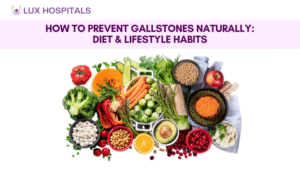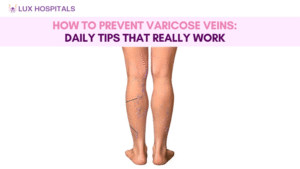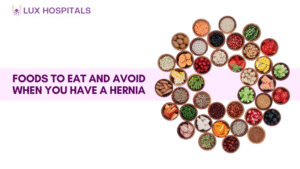Diet After Appendix Removal: What You Can and Can’t Eat

Recovering from appendix removal surgery can feel like a new chapter in your health journey. Whether you’ve undergone laparoscopic or open appendix removal surgery, the food you eat during your recovery plays a majore role in how quickly and comfortably you heal. Understanding what to eat and what to avoid can help you manage symptoms, boost energy, and prevent complications after appendix removal.
This blog will cover everything you need to know about diet after appendix removal, including healing-friendly foods, common appendix removal dietary restrictions, and the best nutrition practices to follow.
Why Diet Is Important After Appendix Removal?
After the appendix is removed, it takes time for your digestive system to adapt. Your stomach and intestines may be sensitive for the first few days after surgery, so it’s critical to maintain a healthy, mild diet. A well-planned recovery diet helps prevent complications after appendix removals, such as bloating, Constipation, and indigestion while supporting your immune system for faster healing.
What You Can Eat After Appendix Removal?
1. Clear Liquids (First 24–48 Hours)
Start with clear liquids immediately following surgery. These include:
- Water
- Coconut water
- Clear broth
- Apple juice
- Herbal teas
Clear liquids keep you hydrated and help your body transition back to digesting food without putting pressure on your gut.
2. Soft and Easily Digestible Foods
As your body begins to recover, introduce soft foods such as:
- Khichdi (lentils and rice)
- Mashed potatoes
- Steamed or boiled vegetables
- Idli or upma
- Plain toast or rice
These are gentle on the digestive system and minimize the risk of discomfort.
3. High-fiber foods (Prevent Constipation)
Constipation is a common side effect of appendix removal, especially if you’re taking pain medications. Add fiber-rich foods gradually:
- Oatmeal
- Whole wheat bread
- Apples (peeled)
- Papaya and bananas
- Leafy greens
Eating these foods can help you have simpler bowel movements and prevent stress of your abdominal muscles.
4. Protein-Rich Foods
Protein is important for wound healing and tissue repair.
- Boiled eggs
- Lean chicken
- Paneer or tofu
- Lentils and legumes
Eggs, in particular, are rich in vitamins like A, B12, and E, which aid recovery.
5. Vitamin C and Zinc-Rich Foods
Boost your immunity and speed up healing by eating:
- Citrus fruits (oranges, lemons)
- Bell peppers
- Guava
- Milk, yogurt
- Pumpkin seeds, nuts, and whole grains
These nutrients help your body repair itself after appendix removal surgery
6. Stay Hydrated
- Drink at least 8 glasses of water
- Include soups, buttermilk, or oral rehydration solutions (ORS)
Hydration supports your metabolism and digestion.
Foods to Avoid After Appendix Surgery
Knowing the foods to avoid after appendix surgery is equally important. These can irritate your digestive tract and delay recovery.
Spicy and Fried Foods
- Chili-heavy curries, fried snacks, oily gravies
These may cause stomach pain or diarrhea during recovery.
Gas-Producing Vegetables
- Cabbage
- Cauliflower
- Beans
These can lead to bloating and discomfort.
Processed and Junk Foods
- Packaged snacks
- Instant noodles
- Sugary desserts
They lack nutrition and add unnecessary burden to your healing system.
Caffeinated and Carbonated Drinks
- Coffee
- Soda
- Energy drinks
These can dehydrate you and irritate the stomach lining.
Life After Appendix Removal: Long-Term Dietary Practices
You can return to a more regular diet once you’re past the initial recovery phase. To enjoy the advantages of appendix removal, such as fewer inflammations or infections in the abdomen, Maintaining a nutritious, well-balanced diet is crucial.
Long-Term Nutrition Tips:
- Stick to whole foods
- Include fruits, vegetables, whole grains, and proteins
- Avoid crash diets or skipping meals
Although life after appendix removal usually returns to normal, staying mindful of your food choices helps avoid recurring digestive issues.
Appendix Removal Side Effects
While most patients recover smoothly, some may experience mild side effects such as:
- Constipation
- Bloating
- Changes in appetite
If these continue, See your physician for more dietary guidance. They might suggest probiotics or other dietary restrictions for appendix ectomy, depending on your circumstances.
Conclusion
Following appendix removal, eating is about fueling your body to recover more quickly, not merely avoiding certain foods. Sticking to a nutrient-rich, fiber-filled, and hydrating diet can minimize appendix removal side effects, support recovery, and make you feel more energized as your body heals.
If you’ve had an appendix removal surgery or know someone who has, consult our expert doctors provide a personalized recovery plan at Lux Hospitals. They’ll guide you through every stage—from managing appendix removal dietary restrictions to helping you understand life after appendix removal.
Frequently Asked Questions
After appendix surgery, avoid fatty, fried, spicy, and processed foods, as well as carbonated drinks, alcohol, and high-fiber items that can cause gas or bloating.
Yes, you should avoid fatty, fried, spicy, and processed foods immediately after appendix surgery. These may cause discomfort or constipation by irritating your digestive tract. Carbonated drinks, alcohol, and caffeine should also be limited.
Depending on your recovery, dietary restrictions following appendix removal usually last one to two weeks. As advised by your physician, it’s critical to gradually resume regular diets while keeping an eye out for any discomfort.
Appendix removal benefits include preventing serious complications like a ruptured appendix or abscess formation. It’s a life-saving procedure with minimal long-term effects for most patients.
Most patients don’t need supplements following a balanced, nutrient-rich diet. However, temporary supplementation may be recommended if your doctor finds deficiencies or if you’re unable to eat certain foods.




















